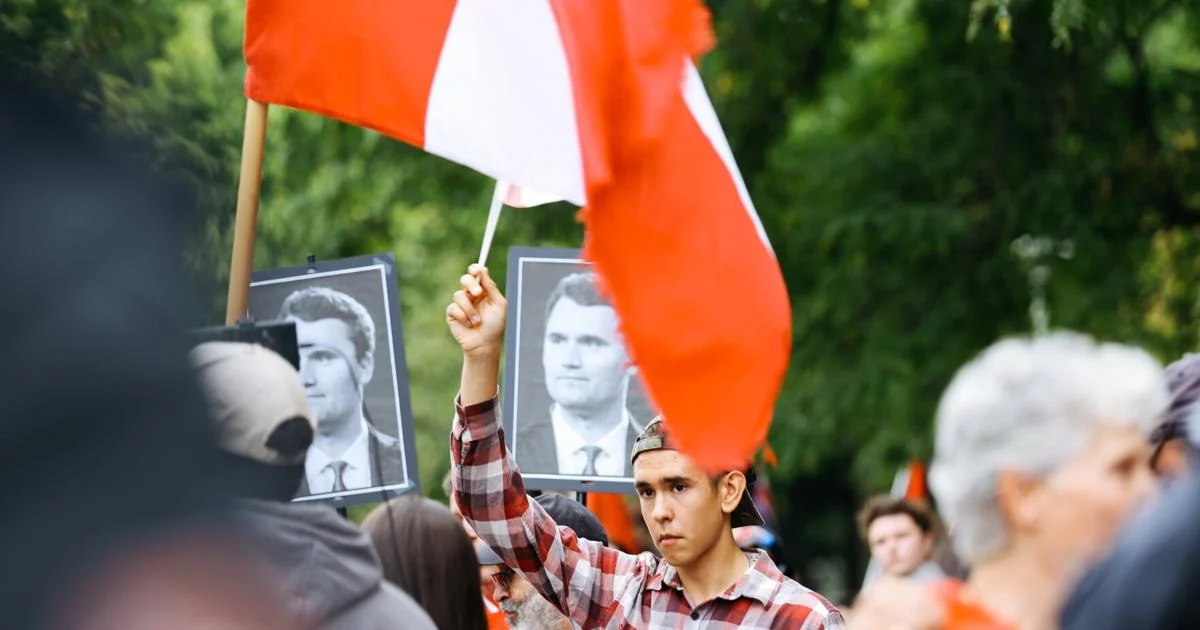By Stephen Maher
Copyright thestar

Since Charlie Kirk was shot, I keep thinking about the months I spent in London, Ont., investigating another politically motivated murder.
One Sunday at dusk in June 2021, a 20-year-old named Nathaniel Veltman ran his Dodge Ram over the curb, killing Madiha and Salman Afzaal, their daughter, Yumnah, and her grandmother, Talat Afzaal. Yumnah’s nine-year-old brother survived the attack with serious injuries.
In 2022, before Veltman was convicted of four counts of first-degree murder and one count of attempted murder, Maclean’s magazine sent me to London and nearby Strathroy, where Veltman had been raised, to report on the terrible crime.
I arrived in the area prepared to write about the incident as an example of far-right terrorism, which it was, but ended up writing a different kind of story: the story of a young man descending into a private hell as a result of mental illness, drug abuse and family dysfunction.
Of course, the ideology that animated him matters, because it gave his tortured mind focus, and it mattered to an extended family that can never recover, and a community that was left to grapple with horror, pain and fear. It matters to law enforcement, which must understand the movements that work to radicalize young men to their cause, and it matters to a justice system that reserves special designations for hate crimes and terrorism.
But on its own, ideology is not enough to understand Veltman.
There was severe mental illness in his family that seemed to manifest in Veltman, too. One of his friends told me that Veltman, who was raised in a strict Christian family, had, in a moment of remorse for lustful acts, tried to castrate himself.
It is true that he saw himself as a warrior against the Great Replacement, had gone down terrible online rabbit holes full of anti-Muslim conspiracy theories, but as I went to the places he had gone, talked about him, thought about him, it came to seem to me that if we want to understand why he did he what he did — not its impact, but its impetus — we must look beyond ideology. The phenomenon — the young mass killer who shoots up a school, mows down a family or commits murder in a place of worship — is consistent, no matter whether the killer is motivated by white supremacy, incel hatred, leftist extremism or Islamism.
Veltman wrote a manifesto, wanted us to think about his hateful ideology, see him as a warrior for his cause. We should see him first and foremost as a loser who threw his life away and destroyed a lovely family.
I came to a similar conclusion in 2014, when I covered the story of Michael Zehaf-Bibeau, who killed Corporal Nathan Cirillo as he stood guard in front of the war memorial in Ottawa. Like Veltman, Zehaf-Bibeau came from a dysfunctional family, was mentally ill and had abused drugs. He went on his killing spree motivated by Islamism, not white supremacy, but he and Veltman were otherwise a lot alike, and if circumstances had been different, they each might have seized on a different ideology.
In both cases, I spent time with people who loved the victims, whose lives are forever scarred by what has happened. Too often such suffering is ground up and used to make partisan points, to further inflame people. Responsible leaders, like Utah Gov. Spencer Cox, try to dial down the emotion, the sense of threat, after incidents like this. Irresponsible leaders, like Donald Trump, try to ratchet it up, which will lead to more violence.
Tragically, there is always a certain number of troubled young men with severe personal problems, a hole inside themselves full of pain that they think they can fill if they act like heroes and kill for a cause greater than themselves. Struggling at school, unable to connect romantically, more isolated than earlier generations, they get black-pilled, as the Incels say, end up hopeless and hateful. They find meaning and community in online chat rooms where they egg each other on with irony as dark as the heart of a black hole.
That is the problem. Whether they are inspired by Anders Behring Breivik or ISIS is secondary to the horror of the phenomenon — ideologically motivated killings are increasing. Most of them are motivated by poisonous far right ideology, but if we centre the ideology of the killers, we are treating them like soldiers, which is what they want.
But in the days since Kirk was shot to death, social media has been full of activists arguing about scraps of disputed evidence about the killer, often in the teasing, sarcastic tone favoured by those seeking to humiliate and disparage ideological opponents on the internet. It’s sickening, watching the murder of Kirk become the latest outrage to be seized on by point-scoring culture warriors.